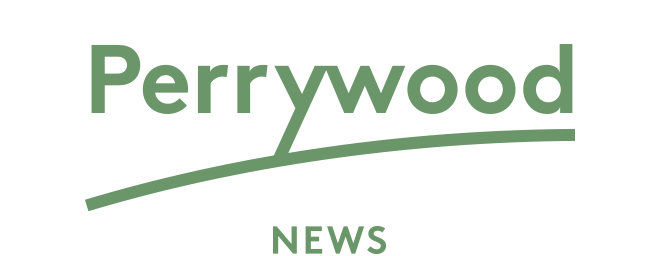
As we are all aware, human caused environmental issues have been at the forefront of media recently. We take our responsibility towards caring for the environment very seriously. Although it is too huge a task to cover all at once, we at Perrywood are busy looking closely into the issues we face as a garden centre and we are preparing to take on the challenge to improve wherever possible.
Some recent questions we have been asked are:
What are we doing to reduce our use of plastic pots?
We have spent time finding sustainable alternatives to black plastic pots which cannot be recycled in your household council collection. We are moving to pots which are recyclable for our Perrywood Grown range, and our suppliers are doing the same. Look out for taupe, blue and grey pots for example, which are made from recycled polypropylene and designed to be kerbside recyclable where possible. We are already seeing many of these in-store from some of our suppliers.
We also sell bare root hedging in the Autumn, and stock the Hairy Pot range of plants, which come in biodegradable pots made from natural materials.
What are we doing to encourage the use of peat free compost?
The horticultural industry has invested a lot of money into developing peat-free and reduced peat products, there is a long way to go but there has been significant progress in finding alternative products to for plants to grow and thrive.
At Perrywood, we have recently increased our range of peat free compost and have clearly marked all peat-free growing media on our signage with a peat-free triangle to help customers find them easily.
We now stock a good selection including four types from the Melcourt Sylvagrow range – standard, organic, ericaceous and with added John Innes as well as Westlands New Horizon peat free compost.
Peat free growing medias can work really well when planting out larger plants in pots and flower beds. At the moment we are still using compost containing peat in our nursery, this is because we haven’t yet found a suitable alternative for propagating younger plants. Ideally, we do not want to sacrifice quality so we are talking to growing media suppliers and other larger nurseries and running in-house trials to find out if it is possible to move to reduced peat or peat free alternatives.
What are you doing to help customers garden sustainably?
As well as introducing more recyclable plastic pots and increasing our peat free range, we use signage to offer advice and to point out environmentally friendly items. Look out for our turquoise signs around the store.
What else do we do to support the environment?
Over the years, we’ve already implemented many practices to help reduce the impact our business has on the natural environment. For example, we do our best to recycle and minimise waste as well as doing our best to use electricity, water and fuel economically.
We source as many products and food from local companies as much as possible. A large proportion of the plants we sell are Perrywood grown and we source as many as we can from British nurseries – look out for a ‘Perrywood Grown’ or ‘British Grown’ symbol.
Supporting our local environment is also very important to us. We are a corporate member of the Essex Wildlife Trust and other conservation trusts and our site including the plant area of the store and the woods behind offer a thriving habitat for local wildlife. Please refer our environmental policy for full details.
Hannah Powell, Communications & HR Director at Perrywood says : “In business, like in the home, we are facing huge challenges in that we have become used to the availability of some products which are not sustainable in the longer term. Changing behaviours is not easy. We at Perrywood want to do our best to help customers when it comes to gardening sustainably. Of course you can also help us by buying alternative products when they are available. For example, we stock peat free growing media which can work well when planting out larger plants in pots or flower beds.
Like many British businesses we are currently working on a sustainability plan, which will look at everything from reducing our use of peat and plastic, through to moving to sustainable energy sources, encouraging wildlife and planting trees. We recognise that there is a lot more which needs to be done and we are working with others in the industry to make changes where we can.”

